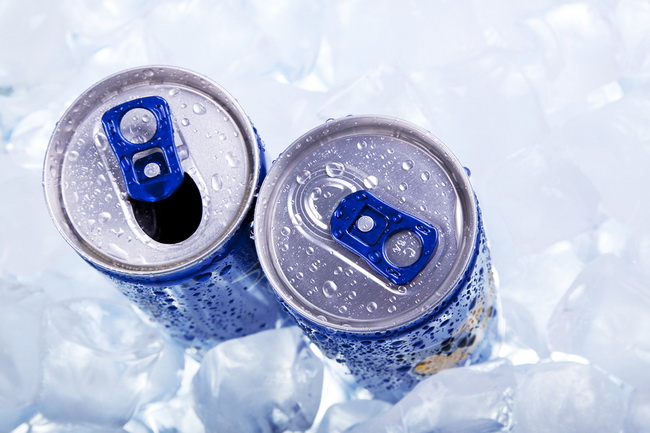- Make It Yourself Lavender Heart-Shaped Bath Bombs!
- 20 Things You Never Knew About “Down There”
- 12 Best Foods For Those Suffering From Arthritis Pain
- 12 Personal Hygiene Mistakes Almost Everyone Makes (Mom Never Told You About #4!)
- 15 Medicinal Plants And Herbs From The Cherokee People
- 12 Mind-Blowing Benefits Of Drinking Coconut Water During Pregnancy
- 12 Outstanding Winter Foods That Won’t Fatten You Up Like A Christmas Turkey
Energy Drinks: What People With Genetic Heart Conditions Should Know

Photo credit: bigstock
Energy drinks have exploded in popularity over the past 20 years. Thanks to the efforts of skilled marketers, they have become associated with increased productivity, athletic performance, partying and extreme sports. Compared to many other beverages, they have a certain “cool” factor going for them. But are there any potential risks associated with these super-caffeinated drinks that have become a multi-billion-dollar industry? New research suggests that energy drinks may pose special risks for people with hereditary heart conditions.
What’s actually inside that can?
To their credit, no one who makes or advertises energy drinks goes around claiming that they’re healthy. These carbonated drinks are usually loaded with sugar. It’s not uncommon to see a can with around 30 to 50 grams of sugar inside! The health risks of excessive sugar consumption include obesity, cavities, diabetes and more.
Then there are the stimulants the drinks contain that make you feel so darn energetic in the first place. These drinks frequently include huge amounts of caffeine, equivalent to several cups of coffee, or in some cases, several shots of espresso. Levels as high as 200 milligrams are not uncommon. In addition to this, many energy drinks include additional stimulants like B vitamins and compounds like taurine. Taurine is a natural amino acid found in the eyes, heart and other organs of the body, as well as various types of food. When combined with the caffeine in energy drinks, some information suggests that it might exacerbate health risks. (And no, taurine is not “bull sperm,” despite what some sources on the internet wrongly claim. The name is derived from the Latin word for bull, which is where this misconception may have arisen.)
Continue to Page 2

Photo credit: bigstock.com
Health risks from energy drinks for those with genetic heart conditions
In addition to being just plain unhealthy, there are some additional risks posed by energy drinks for people with genetic heart conditions. A study was conducted in Australia on participants with long QT syndrome, a cardiovascular condition which can cause irregular heartbeats.
In the study, the participants were given either an energy drink which contained 160 milligrams of caffeine plus 2000 milligrams of taurine, or a control drink, which was simply carbonated juice that contained neither caffeine nor taurine. The researchers found that the participants who received the energy drink experienced a substantial spike in blood pressure versus the ones who consumed the control drink. While this is a slight cause for concern, what really alarmed the researchers was what happened to three of the energy drink consumers.
These participants experienced a sudden change in their QT interval, a term used to describe the cycle during which the heart expands and contracts. The contents of the energy drinks caused an abnormal increase in the cycle, resulting in a slightly prolonged heartbeat. If this happens to someone with a normal, healthy heart, it isn’t great cause for concern. But if it occurs in someone with long QT syndrome, it could potentially be lethal.
What’s especially concerning is that energy drinks have become quite popular with young people, including teenagers. Young people who have long QT syndrome might be undiagnosed, and unaware there is any problem with their hearts at all. These individuals may be consuming energy drinks and other high-caffeine beverages without realizing the potential danger to their health.
In light of this information, what’s the best course of action to take?
Honestly, the hard truth is that energy drinks in general are quite bad for your health. They contain ludicrous amounts of sugar, and very high levels of caffeine and other stimulants that can be quite taxing on your body.
READ ALSO: Side Effects Of Energy Drinks Infographic
If you do have long QT syndrome or any other cardiovascular condition, you should strongly consider not drinking energy drinks at all. It’s just not worth the risk. This also goes for people who are undiagnosed, but have a family history of heart disease. You might be okay now, but if you have a genetic predisposition to heart disease, you shouldn’t place the additional strain of an energy drink’s effects on your heart.
References:

































